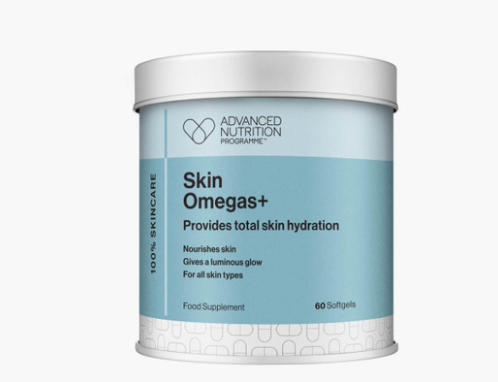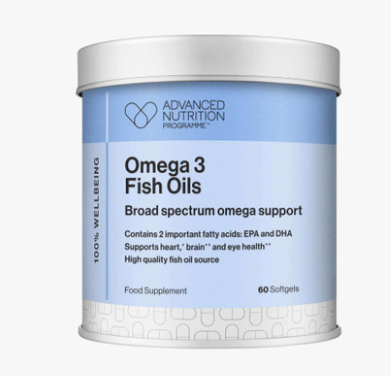Myth busting on omegas

Myth busting: Can omegas really help your skin?
You’ve probably heard about the health benefits of omegas. These essential fats play a crucial role in maintaining skin health* and impact your overall wellbeing by supporting everything from your heart to inflammation on the skin. While omegas have garnered attention in the health industry for their nutritional prowess, there are still a few myths and misconceptions surrounding the topic to be aware of. So, if you still feel confused about how you should be incorporating them into your lifestyle and diet, our skin experts are here to help take out some of the guesswork.


Myth 1: ‘I don’t need to take omegas if I consume a healthy diet’
The things is, even if you do consume omega 3s (found in oily fish, nuts and seeds), the quality of the omegas can vary depending on where the food is sourced and the preparation. Supplements are a convenient way to ensure you’re supplementing your diet with these omega fatty acids.
Myth 2: ‘All omega supplements are created equal’
Unfortunately, while there are a variety of omega supplements available on the market, not all are made from the highest quality ingredients; the quality and the purity of the omega 3 fatty acids used can differ, and therefore so can their benefits and results.
To ensure you’re purchasing high-quality supplements, it’s important to read the label and research the brand before selecting your chosen supplement. Omega supplements are often encased in gelatine capsules and some supplement brands choose capsules that are made from beef or pork, so it’s always important to check this first. Our skin Omegas+ are made from premium fish gelatine. Although fish gelatine is more expensive than the other two, Advanced Nutrition Programme™ chooses to manufacture our Skin Omegas+ capsules in fish gelatine, and at Advanced Nutrition Programme™, we go above and beyond to ensure our ingredients are of the finest quality.
Myth 3: ‘Omega supplements don’t have skin benefits’
In fact, omega supplements are packed with benefits for your skin. Studies have shown that omega supplements can help to reduce redness and certain skin conditions, helping support dry, red, and itchy skin [1]. New research also shows that omegas are linked to conditioning the air and scalp, suggesting that they could be beneficial for both hair growth and hair loss [2].
Myth 4: ‘Omega supplements should smell and taste of fish’
High-quality fish supplements will not have a strong smell or fishy taste. If they do it means they could be low quality and perhaps rancid. Make sure you smell the capsule to ensure it doesn’t smell too fishy.
All in all, if you are searching for ways to increase your omega intake and benefit your skin, our Skin Omegas+ contains Omega 3 from fish oil, but also Omega 6 from evening primrose oil, plus vitamin A. This carefully calibrated synergistic formula of 3 components is designed to achieve hydrated-looking skin over the whole body and is recommended for overall skin health*. The result? A glowing complexion from the inside out.
*Vitamin A contributes to the normal maintenance of skin
Sources:
- Dietary supplementation of gamma-linolenic acid improves skin parameters in subjects with dry skin and mild atopic dermatitis. National Library of Medicine. Asuka KawamuraKatsuhiko Ooyama, Keiichi Kojima, HisanoriKachi, Tatsuichirou Abe, Kazutoshi Amano, Toshiaki Aoyama. 2011.
- Effect of a nutritional supplement on hair loss in women. National Library of Medicine. Caroline Le Floc'h, AhsèneCheniti, Sophie Connétable, Nathalie Piccardi, ColombinaVincenzi, Antonella Tosti. March 2015.
